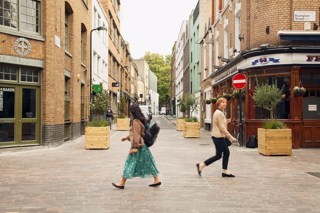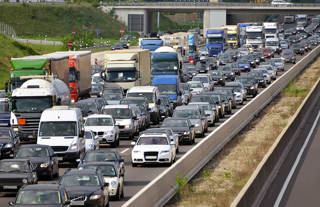Southampton City Council has rejected the idea of introducing a charging low emission zone to help it meet EU air quality targets.
Instead, it has published a Proposed Business Case which features a number of other measures aimed at delivering compliance with the EU limit value for nitrogen dioxide.
These will include measures targeting the city’s port, HGVs, buses and taxis.
The decision has been welcomed by the Freight Transport Association (FTA), which said it was extremely positive for local businesses and port users.
Rebecca Kite, environmental policy manager at the FTA, said: “The proposed charging CAZ would have brought thousands of businesses and operations into its scope, causing operating costs to soar and irrevocably damaging its local economy.
“The decision recognises the importance commercial vehicles play in keeping the city’s economy thriving –delivering the goods and services businesses need to operate – and FTA is pleased these vehicles are not in line to receive heavy fines.
She added: “FTA is looking forward to working with the council to develop a series of non-charging measures.
“While the logistics sector recognises the role it must play in improving air quality, it is important that all types of vehicles are taken into consideration when designing an air quality plan.
“The council recognised a CAZ was not the most effective way to achieve improvements in air quality; we hope other cities learn from this decision and adopt the same common-sense approach.”
Southampton City Council said that work with partners has significantly reduced nitrogen dioxide pollution over the past three years by 24% in some of the most polluted areas.
These have included £15 million of projects including cleaner city buses assisted by £2.7m secured from the Government’s clean bus technology fund, a low emission taxi incentive scheme, the introduction of cleaner fuels and equipment at Southampton’s port, and investing £3.9m in the city’s cycling infrastructure.
The Proposed Business Case makes the argument to introduce further measures to ensure compliance is achieved earlier than 2020 through ongoing improvements to air quality.
Some examples of these measures include:
- Port measures: Including shore side power and preferential charging of the port HGV booking scheme
- HGVs: Offering opportunities for businesses to assess and trial freight consolidation, thereby removing HGV trips in the city, and an accreditation scheme for HGV operators so businesses can identify those operators that are least polluting
- Buses: Introduction of a traffic regulation condition that will ensure all operating buses meet the highest emission standard
- Taxis: Revising taxi licensing conditions to remove the most polluting vehicles, expanding the existing low emission taxi scheme to support more operators, and offering a ‘try before you buy scheme’ for operators to experience the benefits of an electric taxi for up to three months.
Councillor Steve Leggett, cabinet member for Green City said: “Our residents want us to prioritise tackling what has been described as the public health issue of our generation.
“Over the past few years we've led on a range of projects which have made a noticeable difference and made our air cleaner from pollution.
“However, we know that there is still a long way to go to tackle this silent killer, which is why we will shortly be announcing a bold new Green City Charter which will address a range of environmental issues, including an aspiration to cut NOx pollution to 25ug (micro) by 2025 and to become a carbon neutral city by 2040.
“We will be encouraging everyone across the city to get involved and to commit to working with us to achieve this goal."























Login to comment
Comments
No comments have been made yet.